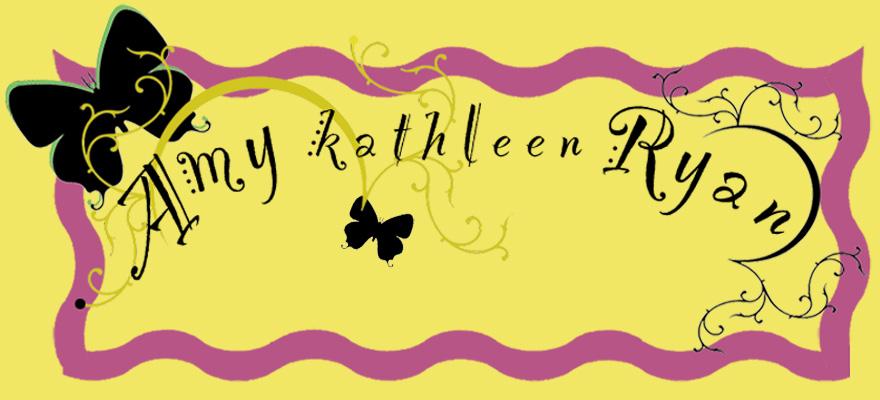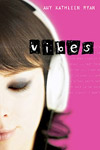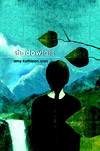Safe.
Today I came across this courageous quote from J.K. Rowling, a writer I admire: "I'm not writing to make anyone's children feel safe." I suspect that Rowling was responding to some version of the question that all writers for kids must answer at some time or another: What is appropriate subject matter for young adults?
This question is loaded with the implicit assumption that it's possible to find some baseline level of propriety that all kids of a certain age can handle. Naturally, this assumption is inaccurate. That's the funny thing about assumptions. Once some of them are formed into words, they seem ridiculous. It's probably true that most kids enjoy a safe home life with loving parents, and they go through their entire childhood without being victimized in any extraordinary way. But some kids don't have loving parents. Some kids deal with violence in their home every day. Some kids don't even have a home. What is "appropriate" for the safe kid is going to be very different from what an unsafe kid will be able to relate to.
Writers for children take a lot of flack from people. Everyone feels very protective of kids, and so the writer who depicts a sexual relationship between a grown teacher and her student, as in the brilliant Boy Toy by Barry Lyga, becomes an easy mark for derision. The chief complaint seems to ask, "How can Lyga write with such detail about the seduction of a twelve year old boy by a grown woman? What is the world coming to?" I'd answer this question with a question: "What about the boys who have suffered the confusion of abuse like this, and are isolated and alone, feeling ashamed like the protagonist of Boy Toy? Would it be better if there were no books to help them know their feelings are natural? Would it be better for them if everyone pretended nothing like this ever happens?" I really don't think so.
I've had to deal with criticism from adults because my character, Kristi, seems too mean, too angry, too dangerous. Grown-ups who read my book seem especially disturbed by Kristi's treatment of her mother. Few of them seem to focus on the fact that Kristi has been abandoned by her father, and has been neglected for years by her workaholic mother, and dumped by her best friend. I think it would be strange if Kristi wasn't angry and lashing out. I've gotten so many emails from kids who relate to Kristi. They recognize their anger and frustration in her, and it helps them feel like maybe these unspeakable emotions they sometimes experience are actually a very human reaction to an inhuman world. By the end of my book, Kristi realizes that her lashing out isn't helping her. In fact, it's making things worse, for her and for the people around her. She learns to feel more positive about herself and other people. And she's happier for it. Because I wrote my ending this way, some critics thought her problems were resolved too easily, but I don't care. What I wanted was to send a message to those hurt and angry kids out there, that there's a better way to deal with their anger and aloneness. That if they reach out to the people around them, they might find they're much happier.
This makes me think of another quote from the incomparable C.S. Lewis: "We read to know we are not alone." Some kids live life safely, protected, and they like to read books about kids like them who are safe and protected. But what about the kids who aren't safe? Don't they deserve to know that they aren't alone? That there's someone out there who has felt what they've felt, feared what they've feared? It's very good that there are writers and parents and librarians that want safe books for safe kids. But the other kids, living outside of this comfortable section of our society need something to read too. In fact, I think they need it more.
This question is loaded with the implicit assumption that it's possible to find some baseline level of propriety that all kids of a certain age can handle. Naturally, this assumption is inaccurate. That's the funny thing about assumptions. Once some of them are formed into words, they seem ridiculous. It's probably true that most kids enjoy a safe home life with loving parents, and they go through their entire childhood without being victimized in any extraordinary way. But some kids don't have loving parents. Some kids deal with violence in their home every day. Some kids don't even have a home. What is "appropriate" for the safe kid is going to be very different from what an unsafe kid will be able to relate to.
Writers for children take a lot of flack from people. Everyone feels very protective of kids, and so the writer who depicts a sexual relationship between a grown teacher and her student, as in the brilliant Boy Toy by Barry Lyga, becomes an easy mark for derision. The chief complaint seems to ask, "How can Lyga write with such detail about the seduction of a twelve year old boy by a grown woman? What is the world coming to?" I'd answer this question with a question: "What about the boys who have suffered the confusion of abuse like this, and are isolated and alone, feeling ashamed like the protagonist of Boy Toy? Would it be better if there were no books to help them know their feelings are natural? Would it be better for them if everyone pretended nothing like this ever happens?" I really don't think so.
I've had to deal with criticism from adults because my character, Kristi, seems too mean, too angry, too dangerous. Grown-ups who read my book seem especially disturbed by Kristi's treatment of her mother. Few of them seem to focus on the fact that Kristi has been abandoned by her father, and has been neglected for years by her workaholic mother, and dumped by her best friend. I think it would be strange if Kristi wasn't angry and lashing out. I've gotten so many emails from kids who relate to Kristi. They recognize their anger and frustration in her, and it helps them feel like maybe these unspeakable emotions they sometimes experience are actually a very human reaction to an inhuman world. By the end of my book, Kristi realizes that her lashing out isn't helping her. In fact, it's making things worse, for her and for the people around her. She learns to feel more positive about herself and other people. And she's happier for it. Because I wrote my ending this way, some critics thought her problems were resolved too easily, but I don't care. What I wanted was to send a message to those hurt and angry kids out there, that there's a better way to deal with their anger and aloneness. That if they reach out to the people around them, they might find they're much happier.
This makes me think of another quote from the incomparable C.S. Lewis: "We read to know we are not alone." Some kids live life safely, protected, and they like to read books about kids like them who are safe and protected. But what about the kids who aren't safe? Don't they deserve to know that they aren't alone? That there's someone out there who has felt what they've felt, feared what they've feared? It's very good that there are writers and parents and librarians that want safe books for safe kids. But the other kids, living outside of this comfortable section of our society need something to read too. In fact, I think they need it more.





0 Comments:
Post a Comment
<< Home